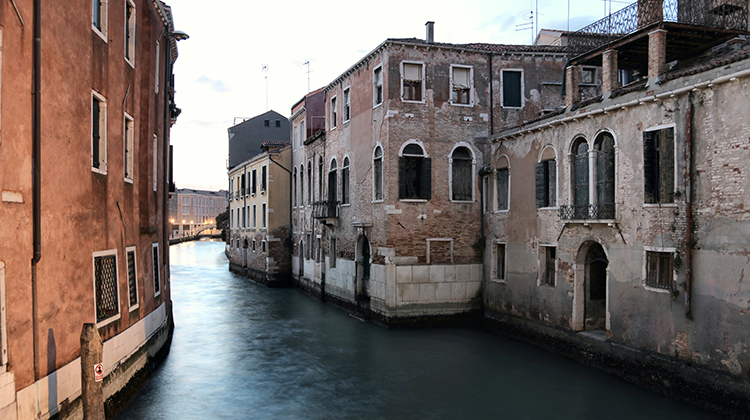Ciao students from all over the world.
This month I was thinking about a topic to talk to you about in my monthly article and while I was thinking I said to myself: who can advise me better than a person who has been studying Italian for many years and who has therefore overcome various obstacles? So, for this article I asked Alex, a dear student of mine (whom I'm sure will read me and therefore I greet with much affection), to tell me what was the most difficult step for him in the path of studying the Italian language.
He undoubtedly answered me: “Isa, the pronunciation!”
And today I'm here to write about this topic because I think that for every language this is the sore point.
Has it ever happened to you to learn a language through books, songs, and texts for a long time and then finally make the long-awaited trip to the country where the language you are learning is spoken and think that you have landed on the wrong flight because you cannot understand a single word?
Well, yes to me! I studied English at school for many years, until one day I finally traveled for 9 hours on a plane to visit my grandparents in Canada, when I got there I tried to practice with my cousin… I let you imagine the disastrous result! At first, I felt confused, wrong, and discouraged as if I had wasted all those years of my life studying a language that I couldn't understand but in reality, it wasn't like that, just the real pronunciation of a language, you can only learn it with lots and lots of practice and some secrets.
Therefore, this article wants to be a friend you can count on and I hope that anyone who is in this situation right now can read it and find the right motivation to continue. Having said that, here I am going to tell you some pronunciation secrets. In general, the trick with Italian, unlike English, is to pronounce all the letters of a word exactly, so the important thing is to know the pronunciation of each letter of the alphabet.
Let's start with the vowels, which are: A, E I, O, U. Unlike French, English, and the same Latin from which it derives, Italian does not distinguish between short and long vowels and does not have diphthongs. it means that you have to read all the vowels, even the final ones within a word. Let's give some examples: The word "AIUOLE" contains all the vowels and trying to pronounce it helps to understand what I mean by the premise. Let's do another exercise with “AUTUNNO”. The beginning AU is given by the vowels A+U which are read separately, not as in AUGUST in English.
Remember to also pronounce E when a word ends with this letter. Try saying “GRAZIE”, with the final E!
Let's move on to the consonants, which are perhaps a little more difficult. There are some that are produced by the sound that comes from the throat and is called guttural, these are the C, the G, and the Q.
The first two (C and G) can have two sounds:
-Sweet, when they are followed by E and I, (for example the words CECI and GESSO) and have the same English sound as Chop or James/Giraffe in English:
-Hard, when they are followed by the remaining vowels therefore A, O, U. In this case, the C has the sound of the K in the word King in English, “CASA-CUORE-CORSO”, while the G has the same sound as Game or Got in English “GATTO-GOCCIA-GUSTO”.
But how does the pronunciation behave when there are two consonants together rather than a consonant and a vowel?
Here we have some sounds that I like to define as special, let's see together what they are:
- GL
If the graphic nexus GL is followed by the vowel I, it is pronounced as if it were a single sound. “FOGLIO, FIGLIO”, GLI sounds like the double LL in Spanish of “AMARILLO” for example.
If GL is followed by any vowel other than I, it is pronounced as two separate sounds of guttural G +L. For example “INGLESE, GLORIA, GLOBO”.
For more examples, you can consult the Treccani Encyclopedia and any other Italian language dictionary.
- GN
The group of letters GN, on the other hand, always produces the same sound, whatever the vowel that follows it. It might look like Spanish N with cedilla. COMPAGNO, INSEGNANTE, LAVAGNA. Start practicing these words!
- SC
As you may have guessed, its sound depends on the vowels that follow it. Let's do a little exercise in Italian as a foreign language and see if you can guess which group of letters is pronounced as SHOES and which is SCHOOL in English.
Group A: SCATOLA, SCONTO, SCUOLA.
Group B: SCIVOLO, SCIARE, CRESCERE, SCEGLIERE.
The general rule is that SC is formed by guttural S+C if followed by A, O, U. If instead it is followed by I and E it forms a single sound like SH of SHOES in English or CH of CHAMPIGNON in French.
These are the main groups, then there would be many others but it is right to learn step by step.
If you need or just like to hear the pronunciation of the sounds I have listed in this article, write me a private message and I will be happy to prepare a voice recording so that you can always hear the sound the pronunciation of a certain group of letters when in doubt.
I hope this article has been helpful for all of you, share it with your fellow students, and see you soon!
Ciao!







